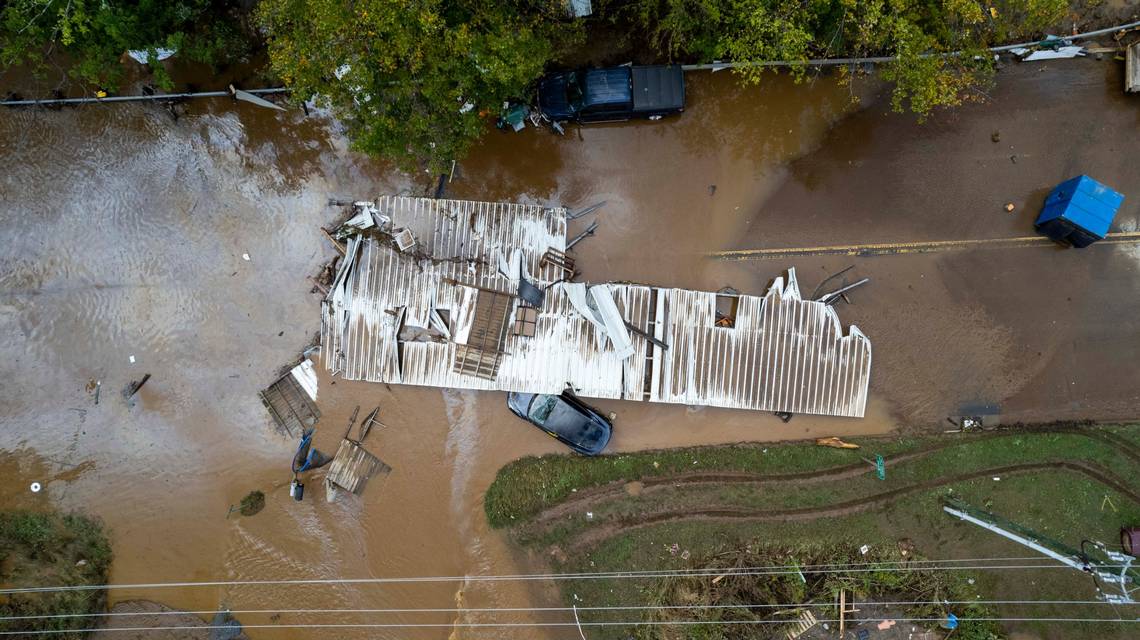
President Joe Biden has agreed to provide immediate federal help to 25 western North Carolina counties battered by Tropical Storm Helene, the White House announced Saturday night. .
The “major disaster” declaration, approved at Gov. Roy Cooper’s request, means FEMA will be able to provide quicker additional help to those who need it. The federal government says it will also reimburse local governments, state agencies and nonprofits for repairing facilities, roads and other infrastructure.
“The people in western North Carolina are hurting from this devastating storm and we are all working to get resources to people as fast as we can,” Cooper said in a news release Sunday. “We have deployed rescue teams, transportation crews, water, mobile kitchens and more. This is going to be a long-term recovery and this federal declaration will help us respond.”
The counties in the declaration are Alexander, Alleghany, Ashe, Avery, Buncombe, Burke, Caldwell, Catawba, Clay, Cleveland, Gaston, Haywood, Henderson, Jackson, Lincoln, Macon, Madison, McDowell, Mitchell, Polk, Rutherford, Transylvania, Watauga, Wilkes, and Yancey. The Eastern Band of Cherokee Indians is also included.
The tropical storm that was once Category 4 Hurricane Helene made it to North Carolina Friday and touched all parts of the state. It led to flash flooding in the Triangle, a tornado in Rocky Mount and historic levels of devastation throughout the Western North Carolina mountains.
The full extent of the damage in Western North Carolina continues to unfold. By Sunday morning, more than 300,000 homes in North Carolina — and more than 500,000 in South Carolina — remained without power.
Floodwaters on Friday wiped out bridges, remote highways and sections of interstates — not only cutting off travel to and through the region, but isolating those sheltering in place during the storm.
On Saturday night, the governor’s office confirmed at least 10 people have died in the storm.
Many in Western North Carolina remained without fresh water, internet or cell service. Seven water plants in Avery, Burke, Haywood, Jackson, Rutherford, Watauga and Yancey counties are closed, according to a news release issued by Cooper’s office Saturday night. That affects nearly 70,000 households.
A total of 17 water plants have reported having no power, while 23 more are operating on backup power. Many Western North Carolina communities have been advised to boil water before using it.
Cooper has deployed the North Carolina National Guard — with 410 troops and 146 vehicles, including high-water vehicles — to help with rescues, transport patients to medical care, and deliver personnel and equipment to where they’re needed.
State transportation officials urged people to avoid travel anywhere in Western North Carolina. About 390 roads and dozens of main highways remained closed Saturday due to flooding, downed trees, landslides or storm damage.
Interstate 26 south of Asheville was open Saturday, but it remained the only major thoroughfare into the region. One section of the eastbound lanes of I-40, three miles from the Tennessee border, washed out and fell into the Pigeon River.
EMEA Tribune is not involved in this news article, it is taken from our partners and or from the News Agencies. Copyright and Credit go to the News Agencies, email news@emeatribune.com Follow our WhatsApp verified Channel





